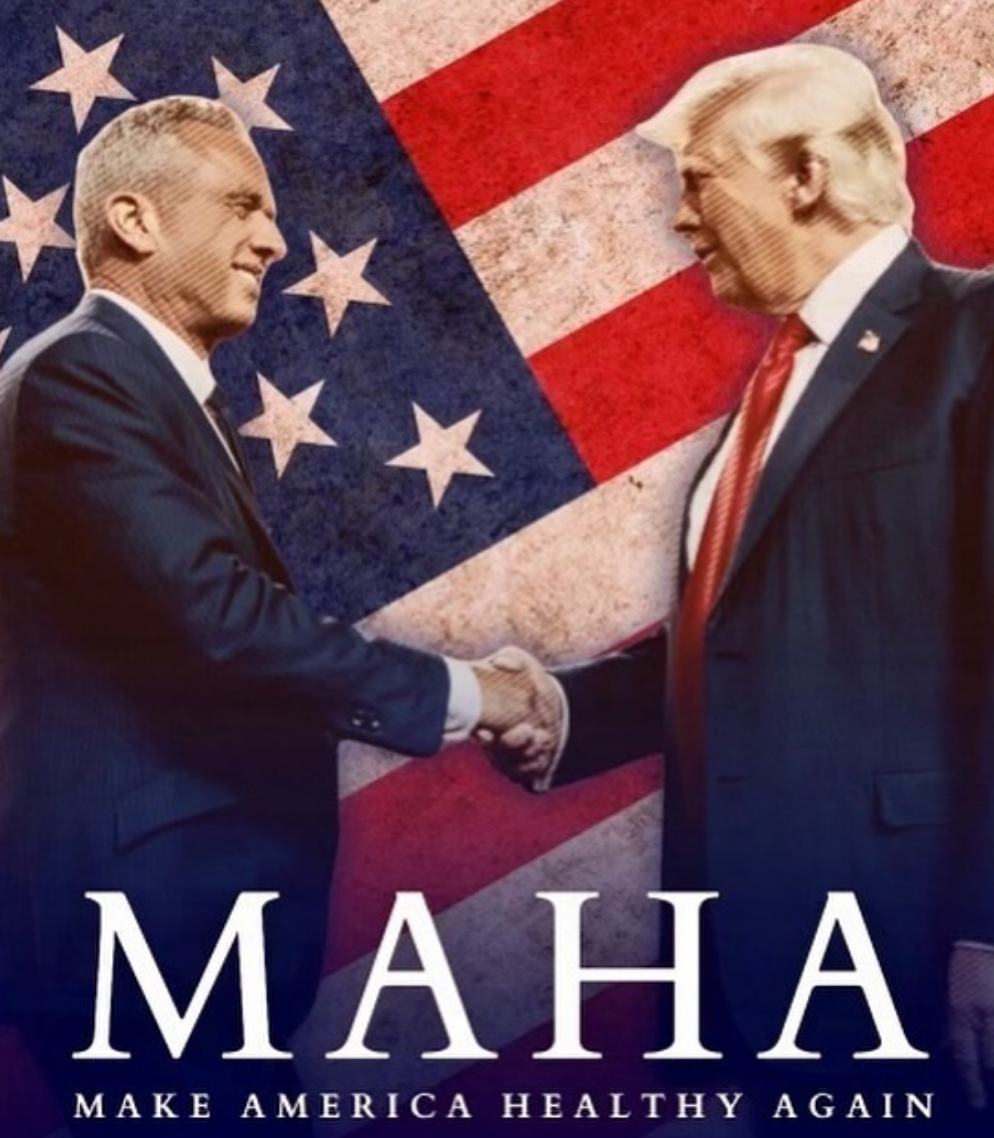Ever since Donald Trump was elected president, there has been increased discussion over the impact of chronic disease in the United States—an issue that the president-elect has proposed a controversial plan to solve.
While many of the usual issues were debated during the 2024 presidential race, the economy, immigration, and abortion being among the most popular—another issue has received more attention than usual, and that is the topic of public health. With chronic diseases at an all-time high in the United States, this is an issue that is of pressing concern for many Americans.
According to the National Institute of Health (NIH), a chronic disease is “a condition that usually lasts for 3 months or longer and may get worse over time.” Chronic disease has now reached epidemic proportions in the United States, with some 50% of Americans suffering from at least one chronic condition.
In addition to causing major challenges for individuals who suffer from them, chronic diseases place a heavy burden on the American economy, costing the U.S. over $1 trillion each year, according to the Center for Disease Control.
Discussions over chronic illnesses like obesity, diabetes, and asthma, were brought to the forefront of the presidential race in part because of the candidacy of Robert F. Kennedy, Jr., who ran for president as an Independent candidate until he ended his campaign and threw his support behind president-elect Trump.
On Thursday, November 14, Trump announced his choice to appoint Kennedy to lead the Department of Health and Human Services, which is the largest governmental health organization in the United States and has a budget of over $1 trillion.
Kennedy has long faced criticism for his views on health and vaccines, many of which have been labeled as conspiracy theories. Kennedy has claimed that vaccines cause autism, which has been widely debunked.
He has also received pushback for his plan to remove fluoride from public water supplies, suggesting that the compound causes bone cancer and IQ loss in children. While there are some risks associated with fluoride when consumed beyond recommended amounts, most medical professionals believe it is safe and has significant benefits for oral health.
Yet despite the criticism Kennedy has received for some of his medical beliefs, the broader claim underlying his medical stances—that Americans are sicker than ever before—has struck a chord with many.
According to a recent Gallop poll, 51% of Americans have a negative view of the American healthcare system, with some of those polled saying the industry contributes to illness more than it solves it.
During his campaign, Kennedy would often cite high rates of illness among children, comparing them to much lower levels seen several decades ago.
“Six percent of kids had chronic disease when my uncle [President John F. Kennedy] was president, and 60 percent do today,” Kennedy said during a campaign event last March. “And there’s all of these autoimmune diseases, which I never heard of—rheumatoid arthritis, juvenile diabetes, these exotic diseases like Crohn’s disease and Lupus.”
Kennedy is right that instances of chronic illness in the U.S. have increased significantly in recent decades, especially among children.
According to the National Institute of Health (NIH), one of the agencies Kennedy will oversee if confirmed as HHS chief, “Type 2 diabetes prevalence in the 10‐to 19‐year‐old population has doubled over the past two decades in the United States.”
Diabetes is not the only chronic condition that doctors have seen a recent uptick in— U.S. obesity rates have more than tripled in the past 60 years, according to 2018 studies by the NIH. Among Americans aged 5-19, obesity rates have risen from only two percent in 1990 to 8% in 2023, according to the World Health Organization.
While there is general consensus among doctors and scientists that there is a major health crisis in the United States, there is less agreement about how to deal with it. There are also a number of doctors who are concerned about Kennedy leading this effort, citing his proven mistrust of government science.
“I think this is an extraordinarily bad choice,” said Dr. Ashish Jha, a former Biden Administration COVID-19 coordinator, in response to Kennedy’s appointment at HHS secretary. “Instead of relying on rigorous analysis and evidence, he seems poised to prioritize his own views in decision-making.”
Some doctors believe the key to dealing with chronic disease is altering the government’s dietary guidelines to encourage Americans to eat fewer processed foods, which have been proven to contribute to chronic conditions like obesity and diabetes.
Some of the dietary advice promoted by government agencies have come under harsh scrutiny in recent years, such as the FDA’s food pyramid, which was a nutritional recommendation released in 1992. The graphic, which divides foods into six categories, encourages Americans to mostly eat carbohydrate-rich foods like bread and pasta and eat fewer high-protein foods like eggs and meat.
In recent years, some doctors have accused the FDA of basing its food guidelines off federal subsidies of grain products like wheat and corn rather than medical data. “The food pyramid was never based on science,” Dr. Robert Lustig, an American endocrinologist at the University of California, San Francisco, said.
Once he has taken office as HHS secretary, Kennedy has said he plans to amend the FDA’s food guidelines to encourage the consumption of natural foods. He also hopes to do away with the nutrition department at the FDA, which is responsible for nutrition labels on food. “They’re not doing their job. They’re not protecting our kids,” Kennedy said of the department.
For now, it seems that the only consensus on chronic disease among government scientists is that it poses a large threat to the health of the nation. When it comes to solutions to the problem, though, the medical community remains fragmented.
“There are some things that RFK Jr. gets right,” former CDC director Tom Frieden recently told NPR. “We do have a chronic disease crisis in this country, but we need to avoid simplistic solutions and stick with the science.”






















Roberta Keegan • Oct 10, 2025 at 6:55 PM
I’ve read two articles, so far, by Olin Rose-Bardawil. I am impressed by his thoughtful take and reasonable development of his narrative and not the usual attack which defends the less investigative response to subjects like “sickness in America” or the predominance of Anti-Palestinian sentiments in the media.